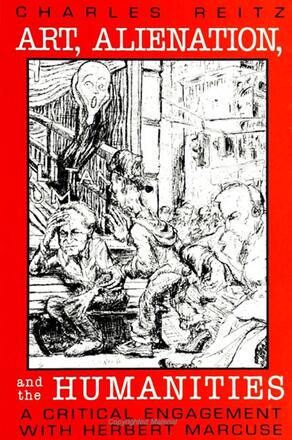
Art, Alienation, and the Humanities
A Critical Engagement with Herbert Marcuse
Alternative formats available from:
Illustrates how Marcuse's theory sheds new light on current debates in both education and society involving issues of multiculturalism, postmodernism, civic education, the "culture wars," critical thinking, and critical literacy.
Description
Winner of the 2002 American Educational Studies Association's Critics' Choice Award
By examining the aesthetic, social, and educational philosophy of Herbert Marcuse, the author documents and demonstrates the structure and movement of Marcuse's thought on art, alienation, and the humanities. Reitz's work stresses the centrality of Marcuse's argument that the arts and humanities may act as disalienating educational forces.
Charles Reitz is Professor of Philosophy and Coordinator of Service Learning at Kansas City Kansas Community College.
Reviews
"Charles Reitz's study of Marcuse is one of the more important works on Marcuse of the last decade. Reitz is the first to connect studies of Marcuse's concept of art with conceptions of aesthetic education and the only one who connects Marcuse's thought more broadly with the problematics of education. The result is an original and engaging study of Marcuse's work that provides fresh insight into one of the most important thinkers of our century. " — Douglas Kellner, author of Herbert Marcuse and the Crisis of Marxism
"Reitz's interpretation of Marcuse's work within the context of the modernist and postmodernist struggle to find solid ground and/or signposts within the debris of various putative certainties, and quests for certainty, give his subject's work fresh meaning. The perilous flight: from the dangers of reductionism, iron-clad causalities, and bogus scientism in what some consider inherent in orthodox Marxism, to a retreat to idealistic forms/universals and quasi-pure aesthetics, is laid bare in Reitz's Marcuse. " — Richard Brosio, author of A Radical Democratic Critique of Capitalist Education
"The emphasis on Nietzsche, Dilthey, Heidegger, and early Lukacs, the discussion of the history of educational theory from Plato to Kant, the firm grasp of the difference between the dialectical approaches of Hegel and Marx by contrast with the later trend of social-historical analysis stemming mainly from Nietzsche and Dilthey—all of this written with utmost clarity and lack of jargon—makes this an outstanding work of philosophical scholarship. " — James Lawler, State University of New York at Buffalo